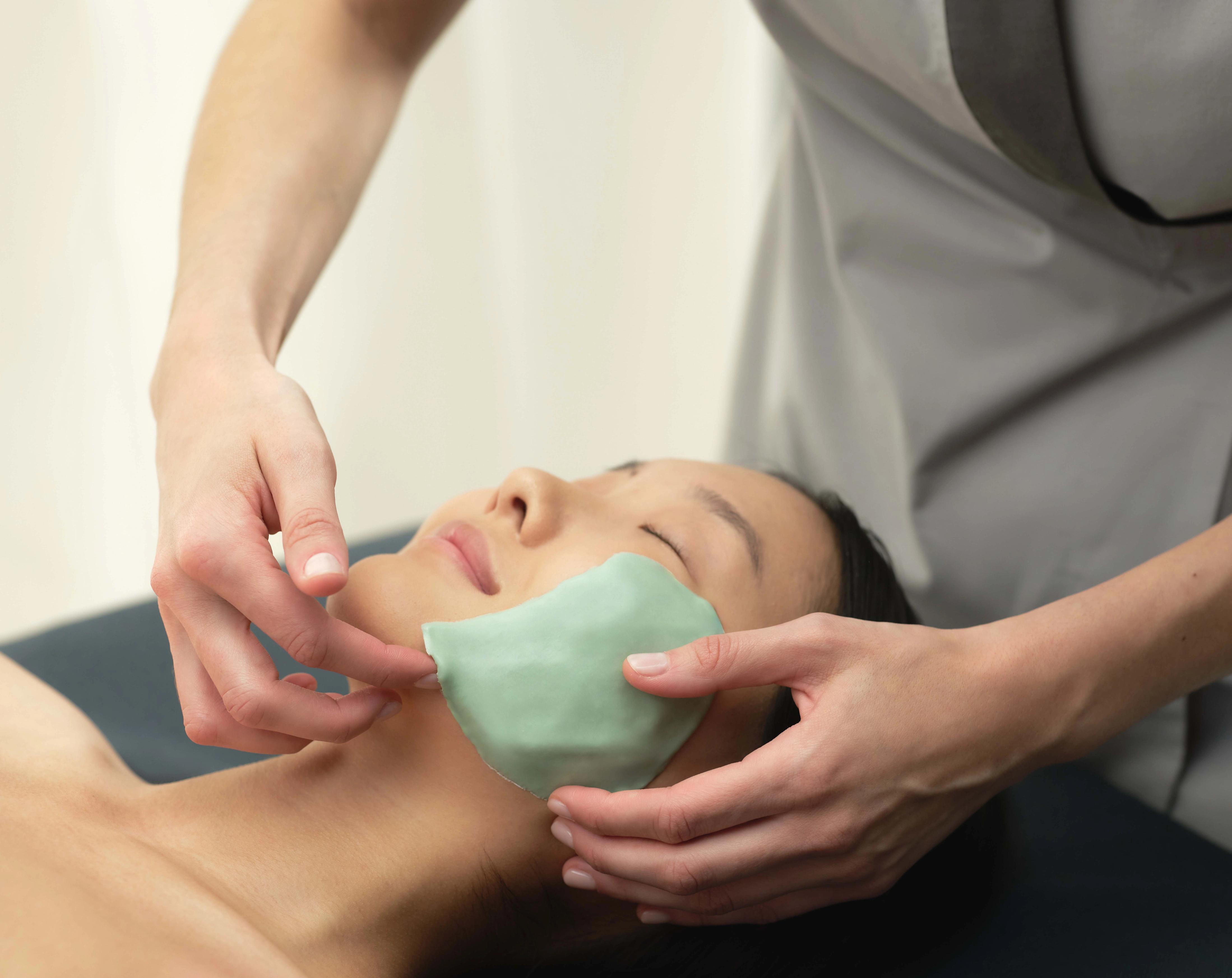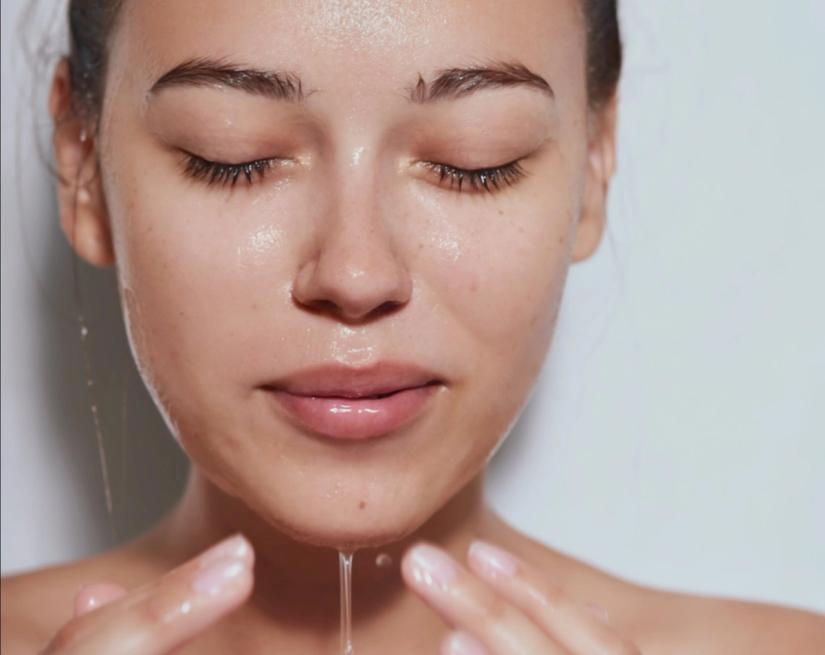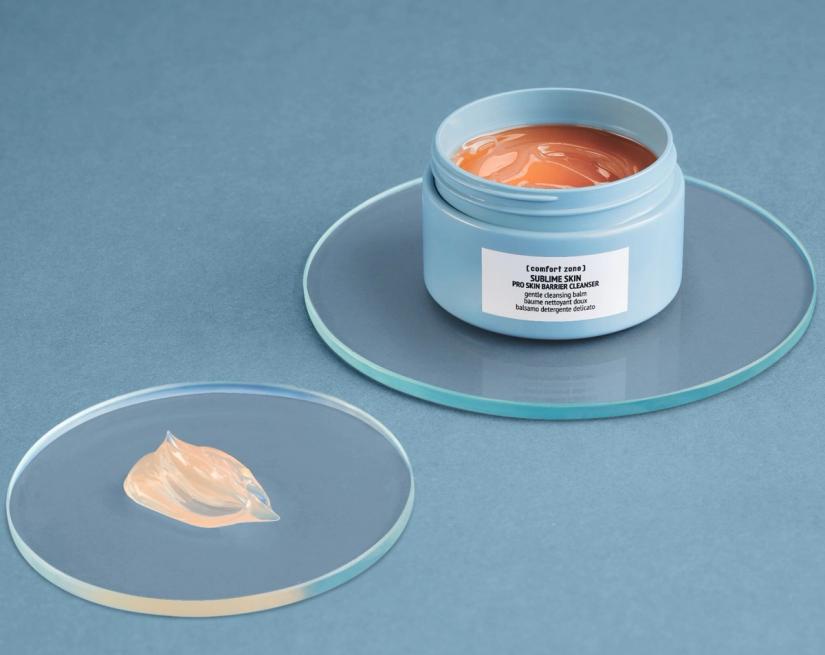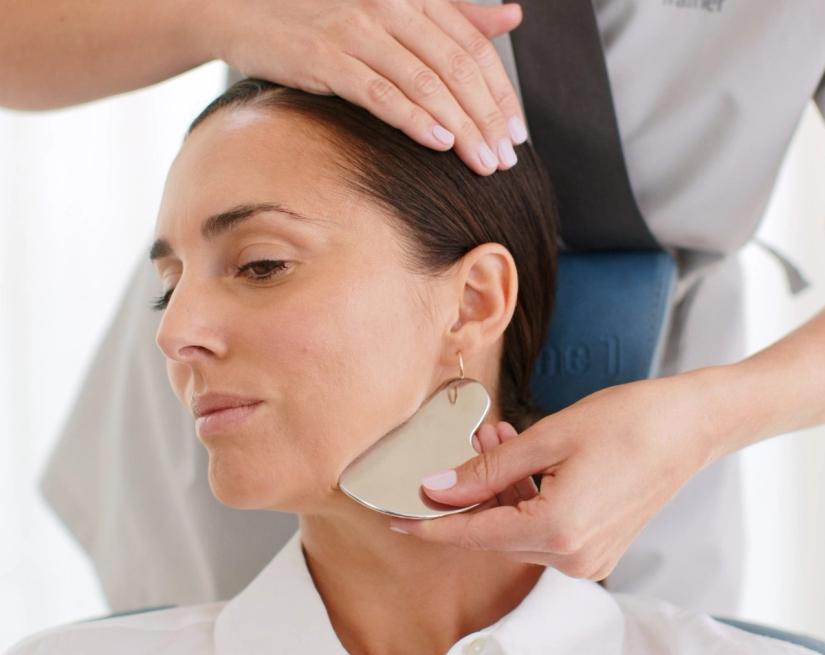skin care
Understanding and Healing a Damaged Moisture Barrier
Maria Giulia Simonazzi | International Training Manager
10 min read

Did you know that the skin is the largest organ of the body? It is common to forget that our skin alone is one of the most noticeable determinants of overall health and well-being. Your skin assists in protection from external factors, bacteria, and infections, as well as overall temperature regulation. It’s a natural barrier to external damage, UV light, pathogens, and oxidative stressors. If your skin’s moisture barrier is damaged it becomes more susceptible to issues such as dehydration, sensitivity, and accelerated aging.
With a direct focus on skincare integrity, Comfort Zone offers real solutions to help promote healthy skin cell turnover patterns, heal damaged skin barriers, and optimize your overall health.
"Restoring a compromised skin barrier requires a gentle approach with nourishing products, such as soothing antioxidant oils, calming serums and protective moisturizers, both morning and evening."
Elisabeth Nehme - Global Brand Ambassador Comfort Zone
Anatomy of the Skin
To combat issues with your skin, it’s important to understand how it works. The skin is made up of multiple layers including the epidermis, dermis, and hypodermis. Within the epidermis (the outermost layer) there are several internal layers. The stratum corneum is the outermost layer and the stratum basale is the deepest. The stratum corneum functions as a protective barrier against external elements while the stratum basale is responsible for the regeneration of skin cells.
Skin cells have a natural life cycle starting from their formation in the basal layer of the epidermis. The newly regenerated cells are pushed upwards, slowly drying out and eventually flaking off. As the older keratinized cells flake, they are replaced by the rejuvenated cells that have made their way upward toward the outer layer of the skin. However, as we age, skin cell turnover rates decrease and result in dehydration.
The skin has three main defense layers, including the microbiome, lipid barrier, and acid mantle. Epidermal lipids are composed of ceramides, fatty acids, and cholesterol. When combined, these compounds can maximize anti-aging benefits, reduce inflammation, and increase moisture retention. The lipid barrier is specifically crucial in preventing Trans Epidermal Water Loss (TEWL), which ultimately shields against external aggressors. The skin cells are also made up of natural moisturizing factors (NMFs) that help retain moisture in the skin and preserve skin integrity.
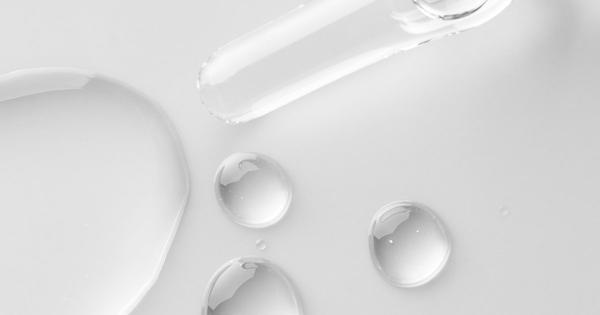
Identifying a Damaged Moisture Barrier
Do you ever wonder why your skin appears oily on some days and dry on others? There are several considerations when analyzing your skin type and its moisture barrier sensitivities. Oily skin occurs when there is excess sebum production, while dryer skin occurs due to a lack of sebum production. These extremes are caused by lipid deficiencies. One may also experience a combination of both skin types, experiencing oily skin in the T-zone areas of the facial structure, while having dryer cheek surfaces.
Individuals who are prone to more sensitive skin are likely to endure barrier damage due to lipid deficiency and easy penetration of external irritants. If you are experiencing eczema, rosacea, redness, or irritation, you may require a more tailored skincare routine involving hyaluronic acid and ceramide-rich moisturizers to re-establish skin hydration. The skin can become overwhelmed if there are too many products, such as retinoids, acids (high alkaline), and toners, introduced at the same time. Those who are experiencing inflammation or damaged appearance to the skin may consider simplifying their skincare routine and removing harsh exfoliants to help restore balance.
If you are experiencing persistent skin issues, it may warrant a visit to a dermatologist or skincare professional who can further analyze your skin type, skin condition, and skin sensitivities to help define the origin of your concerns.
Causes of Barrier Damage
As stated above, the microbiome is the outermost layer of the skin's surface and houses microorganisms that help the skin and the body’s immune system function appropriately. An imbalance in the microbiome can weaken its defense mechanism and lead to infections, inflammation, or viruses. There are a myriad of factors that can compromise the skin's moisture barrier. These include:
Common Irritants
Harsh cleansers, abrasive scrubs, detergents, fragrances, and chemical-laden skincare products are common irritants that can lead to barrier damage. Irritation can occur in the form of redness, itchiness, tightened skin, or swelling. Substituting alkaline heavy products for a gentler, pH-balanced product will help minimize irritation.
Environmental Stressors
Free radicals in the environment caused by pollution and UV rays can cause rapid skin aging, especially when exposed for long periods of time. These environmental impacts degrade collagen, which results in fine lines, skin discoloration, and loss of firmness. Extreme weather conditions can also directly impact skin health. Depending on whether your skin is more exposed to harsh sun exposure or colder conditions, it may require an adjustment to your skincare routine to balance skin moisture and protection.
Elasticity and Aging
Skin elasticity is the ability of your skin to stretch and recover to its healthy position. As we age, our skin begins to lose its collagen and elastin proteins due to hormonal changes and decreased production of natural oils. There are several ways to help restore and preserve skin elasticity, which include wearing high-SPF sunscreens, incorporating hyaluronic acid, and taking collagen supplements.

Skincare Routine Do's and Don'ts
It is critical to establish an effective and gentle skincare routine to prevent further damage to the moisture barrier. See below for ways to encourage a healthy moisture barrier:
Choosing a Gentle Cleanser
Selecting a mild, pH-balanced cleanser to avoid stripping the skin of its natural oils is essential for skin sensitive to irritation. Remedy Cream to Oil is a face wash, formulated specifically for sensitive skin that fortifies the skin and preserves the skin barrier due to its emollient. Cleansers with glycerin and hyaluronic acid will help increase the skin’s ability to retain moisture and stay hydrated.
Balanced Exfoliation
There are two key skin exfoliants known as AHA (alpha hydroxy acids) and BHA (beta hydroxy acids). Although exfoliation is essential for removing dead skin cells, it must be used with moderation to refrain from stripping the skin of its natural oils and over-exposing the layers to the sun. AHAs are less abrasive and help reduce the appearance of fine lines, whereas BHAs are more useful for acne-prone skin. BHAs are considered “oil-soluble” which allows them to penetrate beyond the skin’s surface and into the pores. AHAs strictly act on the surface of the skin.
Hydration is Key
Proper hydration is essential for maintaining a healthy and resilient skin barrier, promoting a more vibrant complexion, reducing the appearance of fine lines, and fostering an overall youthful glow.
Protection with Sunscreen
Sunscreen is essential in shielding the skin from harmful UV rays. Broad-spectrum sunscreen should be applied daily. This is especially true after exfoliation, as your skin is more exposed and vulnerable to external factors.
Avoiding Harsh Ingredients
Avoiding harsh ingredients, such as alcohol-based toners, strong acids, and synthetic fragrances in your skincare routine will help protect your skin from having an adverse reaction.
Mindful Product Layering
The rule to mindful product layering is to layer from lightest to heaviest. Cleansers and toners will help prep the skin by restoring the skin’s pH balance and removing dead skin cells. Serums, moisturizers, and sunscreen will complete the layering process and enhance the absorption of all active ingredients.
Tailoring Routine to Skin Type
Tailoring your skincare routine begins with understanding your unique skin type, allowing you to select products that effectively address your specific skin concerns. The primary skin types encompass dry, normal, combination, and oily.
Dry skin is characterized by a sensation of tightness and flakiness. If your skin feels comfortable with neither tightness nor oiliness, you likely have normal skin. Combination skin manifests as dryness in certain areas and oiliness in others. On the other hand, if your skin feels greasy or shiny, particularly around the T-zone, you are likely dealing with oily skin.
Essential Skincare Ingredients
It is crucial to be cognizant of the active ingredients within products, as they play a major role in nutrient absorption. Key skincare ingredients that play a pivotal role in repairing and maintaining a healthy moisture barrier include:
Active Ingredients
Active ingredients are responsible for providing protection and anti-aging effects. Some of the most common active ingredients include retinol, hyaluronic acid, niacinamide, and ceramides.
Hyaluronic acid preserves moisture, whereas niacinamide reinforces the hydrolipidic film and fights against inflammation sensitivities. Retinol is a popular ingredient that stimulates the synthesis of collagen and elastin, improving skin structure. Ceramides act like a sealant, locking in the skin’s moisture content. Humectants are a type of moisturizing agent that pulls water into the outer layer of your skin from deeper levels of your skin and the air.
Hyaluronic Acid
Restoring the skin’s water content throughout the day is critical in aging prevention. Hyaluronic acid is a humectant that helps retain moisture, stretch the skin, and reduce the appearance of wrinkles. The Comfort Zone Hydramemory collection combines natural ingredients and hyaluronic acid in various forms to ensure a long-lasting water reservoir in the skin and effective protection of the skin barrier.
Glycerin
Glycerin is also a humectant commonly used with occlusives to trap the moisture it draws into the skin and establish quicker healing capabilities for the skin. From cleansers to moisturizers, glycerin's versatility makes it a staple ingredient, contributing to a well-rounded skincare routine that nurtures and revitalizes the skin.
Antioxidants
Antioxidants neutralize unstable, free-radical molecules, preventing them from causing damage to the skin. Serums tend to offer a more targeted approach to achieve active ingredient absorption. For example, vitamin C is an antioxidant that helps brighten the complexion and balance hyperpigmentation. Another powerful antioxidant that helps calm irritated skin, reduce redness, and alleviate inflammation areas is green tea extract.
Acid Mantle and Humectants
As previously mentioned, the acid mantle is part of the frame that creates a healthy skin barrier. It is a thin film on the skin’s surface composed of lipids from the oil glands mixed with amino acids. The mantle maintains moisture and protects against bacteria that try to enter the skin barrier. Humectants help fuel the acid mantle and promote protective, shielding capabilities.
Natural Oils
Oils such as goji berry oil, macadamia oil, argan oil, rosehip oil, and jojoba oil are particularly effective at improving skin elasticity and reducing the appearance of fine lines. The Comfort Zone Renight Oil promotes a dual nourishing and antioxidant action.
- Oily or acne-prone skin: Opt for lightweight oils such as grapeseed or rosemary oil to refrain from clogging your pores.
- Dry skin: Opt for richer and heavier oils such as avocado or argan oil to help further penetrate the skin.
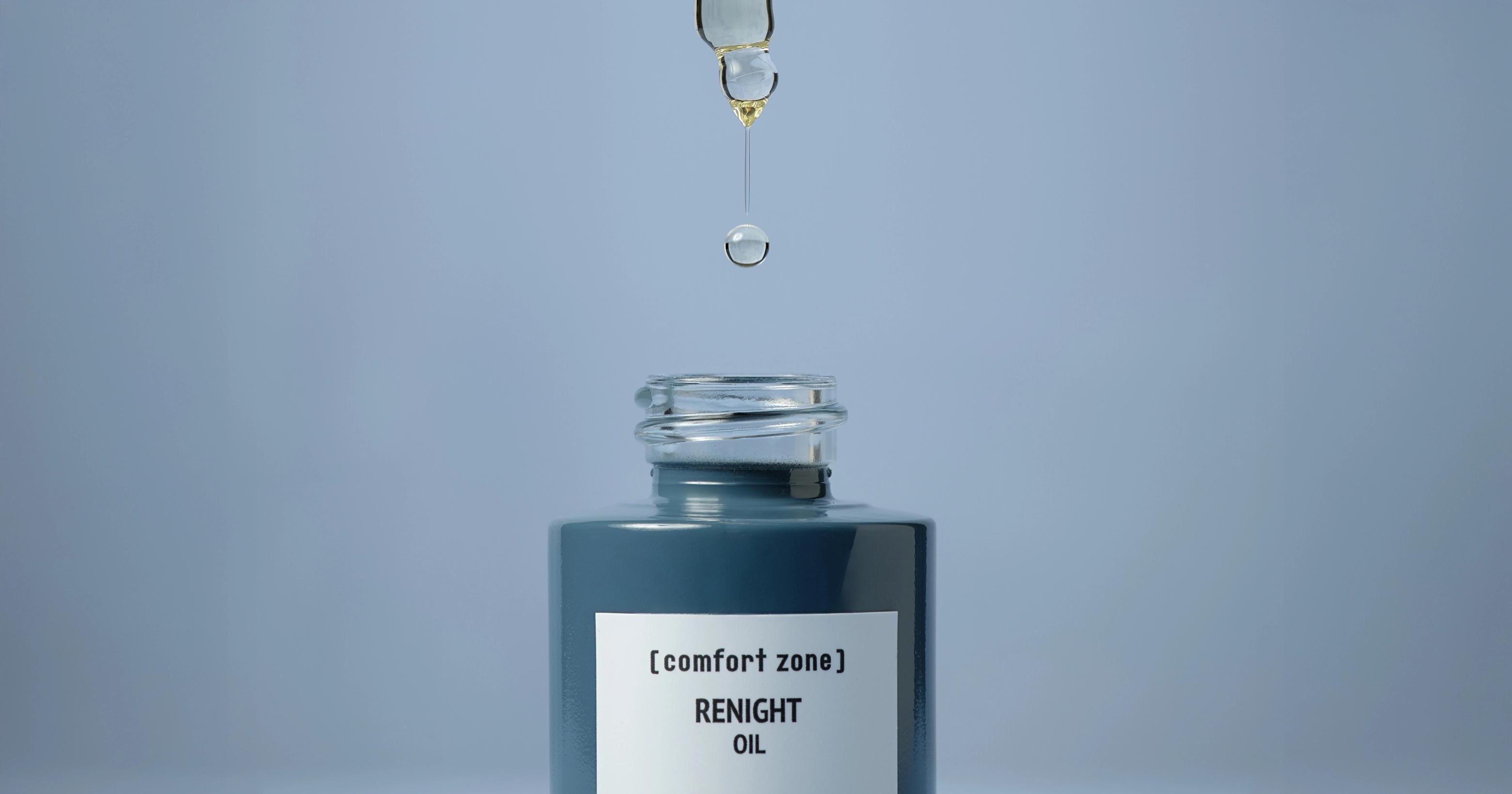
Hydrate your Skin and Restore your Health
The moisture barrier can be easily damaged if not properly protected or thoroughly hydrated. Studying your skin type and learning how your skin reacts to irritants and external stressors is the first step in curating a healthy, sustainable skincare routine for your best-looking appearance. Incorporating humectants, natural oils, and sunscreens into your personally tailored skincare routine will help ensure a healthier skin texture in the long term.
Comfort Zone is committed to providing effective solutions to skincare concerns to re-establish and restore the skin barrier, unlocking the path to a healthier complexion.
